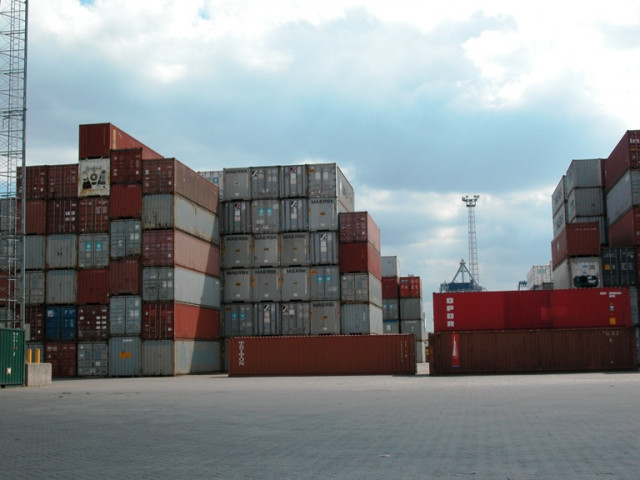Exports likely to slip in coming months
TDAP chief says energy shortage and global weakness hurting industries.

After performing well in first five months, Pakistan’s exports may fall in remaining seven months of fiscal year 2011-12 because of massive energy shortages which have crippled industrial production, says Chief Executive of Trade Development Authority of Pakistan (TDAP), Tariq Puri.
He was speaking to the industrialists and businessmen on Monday at the office of Korangi Association of Trade and Industry (KATI), one of the biggest industrial zones of the country.
“Despite all odds, exporters have done exceptionally well in the first five months (July-November 2011) and have maintained last year’s pace of exports,” Puri said. “But now owing to power shortages, we may not be able to maintain the pace and exports may decline in the next seven months.”
In last fiscal year ended June 2011, the exports rose to a record high of around $25 billion, but experts believe that this trend may not be sustained this year following a sharp decline in world cotton prices and crippling energy shortages in the country.
Puri especially mentioned the gas crisis in Faisalabad and other cities of Punjab, which he believed would hurt the stable exports.
Global economic situation is also not encouraging either. “The world is experiencing the worst economic slowdown, especially in Europe, which has slowed down exports of our regional countries,” he said. “Indian exports have declined considerably over the last few months unlike our exports, but now this external phenomenon is going to hurt us as well.”
However, Pakistan’s non-traditional exports are diversifying and increasing on a sustainable basis, which is a good sign for the economy. According to Puri, the exports of food group and other categories have shown a continuous growth ranging from 15 to 35 per cent per year in the last few years.
Puri, a seasoned bureaucrat, took a different line from the government and energy experts. He believed that the government should divert more gas to the industry even if it had to curtail supply to residential consumers.
“A worker can live without electricity, but if his industry does not run, he will not be able to feed his family and this will cause serious law and order problems,” he argued.
He said Pakistan was trying to convince European Union countries which had some reservations about the EU package involving duty concessions for exporters. “I hope that negotiations will be completed in February.”
The government was also in final stages of signing a preferential trade agreement with Indonesia which would greatly help in reducing import cost of palm oil while increasing kinnow exports to Indonesia, he said.
KATI Chairman Ehtesham Uddin suggested that the government should formulate a five-year export plan, enabling the private sector to work according to the programme. He, however, pointed out that the government was not giving due attention to the non-traditional items in order to diversify exports.
Other businessmen underscored the need for immediately doing something to control the gas crisis.
Published in The Express Tribune, January 10th, 2012.


















COMMENTS
Comments are moderated and generally will be posted if they are on-topic and not abusive.
For more information, please see our Comments FAQ